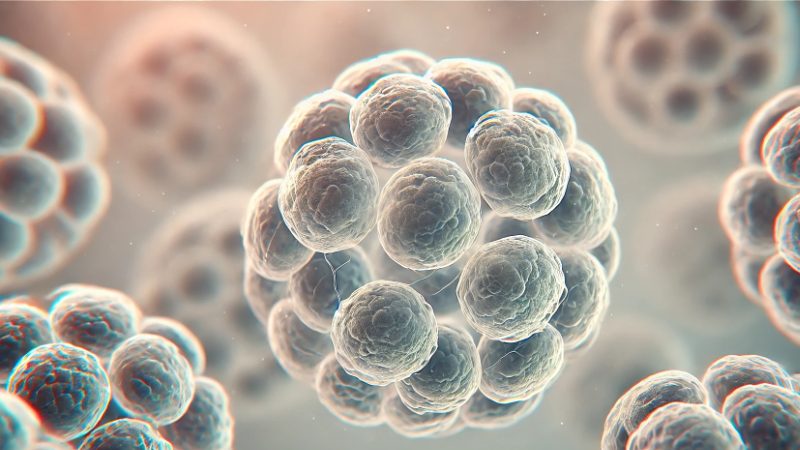Author: Martin Trinker
The biopharmaceutical industry stands at the forefront of modern medicine, offering life-saving treatments such as antibodies, vaccines, and cell therapeutics. Central to the production of these advanced therapies are mammalian cell lines, with Chinese Hamster Ovary (CHO) cells being the workhorse of choice. These cells are favored for their ability to produce complex proteins with human-like post-translational modifications, crucial for the efficacy and safety of biopharmaceuticals. However, the path from cell line to therapeutic protein is fraught with challenges, primarily related to production costs and efficiency.
The Vital Role of CHO Cells in Biopharmaceuticals
CHO cells have become indispensable in the biopharmaceutical sector due to their robustness and adaptability in producing therapeutic proteins. Their use has been instrumental in manufacturing some of the world’s most important drugs, including various monoclonal antibodies and hormones like erythropoietin. Despite their advantages, the production process involving CHO cells is not without hurdles. Traditional fed-batch processes, which typically extend over two weeks, often face issues such as product degradation caused by proteases in the culture medium. These challenges necessitate innovative solutions to enhance the stability and yield of the proteins produced.
Historical Context and Development of CHO Cells
The journey of CHO cells in biopharmaceutical production began in the 1950s when they were first isolated by Dr. Theodore Puck and his colleagues at the University of Colorado. Over the decades, these cells have undergone significant genetic and functional modifications to enhance their productivity and stability. The development of recombinant DNA technology in the 1970s and 1980s further propelled the use of CHO cells, enabling the production of complex proteins that are essential for modern therapeutics. Today, CHO cells are used in over 70% of biopharmaceutical manufacturing processes, underscoring their critical role in the industry.
The Importance of Biopharmaceuticals
Biopharmaceuticals signify a major leap forward compared to traditional small molecule drugs. They are typically derived from living organisms and include a wide range of products such as monoclonal antibodies, recombinant proteins, and cell-based therapies. These biologics offer several advantages, including high specificity, which reduces off-target effects and improves patient outcomes. They are used to treat various conditions, from cancer and autoimmune diseases to rare genetic disorders. However, the complexity of these molecules requires sophisticated production systems, often leading to high costs and production challenges.
The Challenge: Cost Constraints in Biopharmaceutical Production
Despite the advantages of CHO cells, current biopharmaceutical production processes face a significant challenge: cost. Traditional methods, often relying on fed-batch systems where nutrients are added periodically over extended periods (up to 14 days), are susceptible to protein degradation. Enzymes naturally present in the culture broth, like proteases, can break down the very proteins we aim to produce. Additionally, the high cost of culture media and the need for extensive purification steps further drive-up production costs. This translates to lower yields and higher production costs for pharmaceutical companies, ultimately hindering the accessibility of these life-saving therapies and highlights the need for innovative solutions to enhance the efficiency and cost-effectiveness of CHO cell-based production.
Stabilizers for Enhanced Protein Production
In response to these production bottlenecks, the Austrian Centre of Industrial Biotechnology (acib) has developed an innovative stabilizer library, offering a comprehensive solution to the problem. Firstly, they significantly improve protein stability upon excretion by the CHO cells, minimizing degradation by proteases and other enzymes. Secondly, their formulation is carefully designed to minimize any impact on downstream processing, such as purification using various resins, or by affecting factors like viscosity or osmolarity.
Initial screenings have shown promising results, with a notable increase in viable cell density and an average yield improvement of 25% for human erythropoietin fusion protein (EPOFc) in CHO cells. This improvement was achieved without extensive optimization, suggesting even greater potential with further fine-tuning.
Beyond Biopharmaceuticals: A Versatile Platform with Broad Applications
While acib’s stabilizer technology is primarily aimed at improving biopharmaceutical production in CHO cells, its applications extend far beyond. The technology shows potential for use in HEK cell lines and could be pivotal in emerging fields such as cultivated meat production. Any process that requires the stabilization of proteins could benefit from acib’s innovative solutions.
Tailored Solutions for Your Needs
We understand that every biopharmaceutical production process has unique needs. That’s why acib offers a comprehensive service package built around our stabilizer library. We employ a Design of Experiments (DoE) approach to identify the optimal stabilizer combinations for your specific Protein of Interest (POI), maximizing production yield.
Our services encompass:
- Combinatorial Testing: acib meticulously tests various stabilizer combinations to pinpoint the most effective formulation for your specific needs.
- Scalability: acib assists in scaling up the chosen stabilizer formulation to bench-top fermentation volumes, ensuring a smooth transition from development to production.
- Downstream Compatibility: acib evaluate the impact of the stabilizers on your existing downstream processes and formulation, including compatibility with diverse purification resins.
- Troubleshooting Expertise: Our team is here to address any challenges you encounter during the implementation process.
In an industry where efficiency and cost-effectiveness are paramount, acib stands out with its newly developed stabilizer technology. Pharmaceutical companies grappling with high production costs and inefficiencies can greatly benefit from acib’s expertise. By collaborating with acib, companies can tap the full potential of their CHO cell lines, ensuring higher yields and more stable products.
For those looking to improve their biopharmaceutical production processes, acib offers a compelling proposition.
Image by DALL-E
